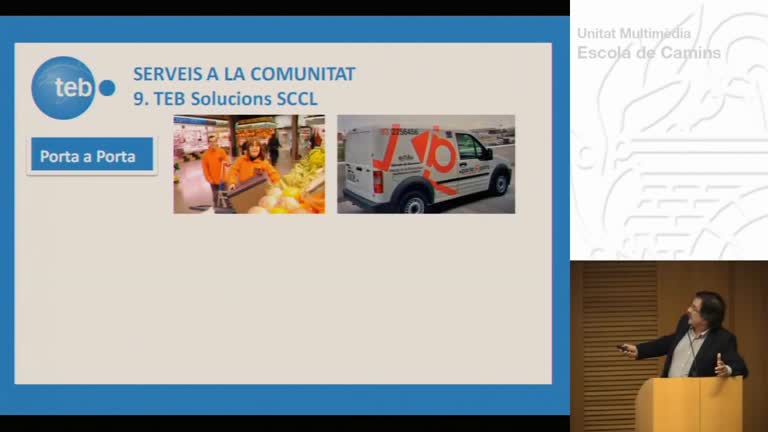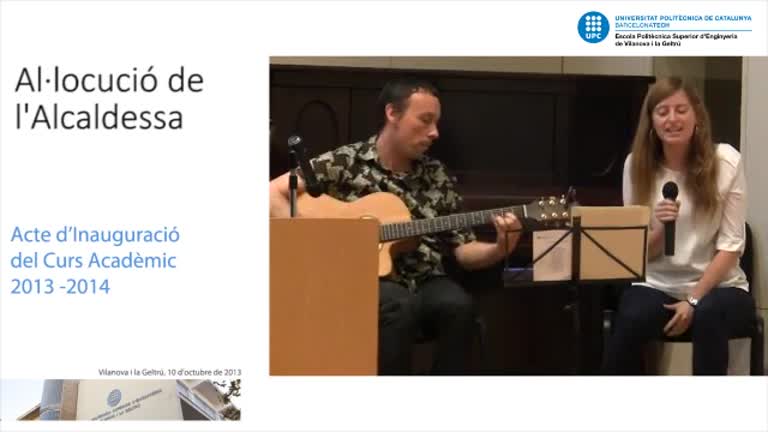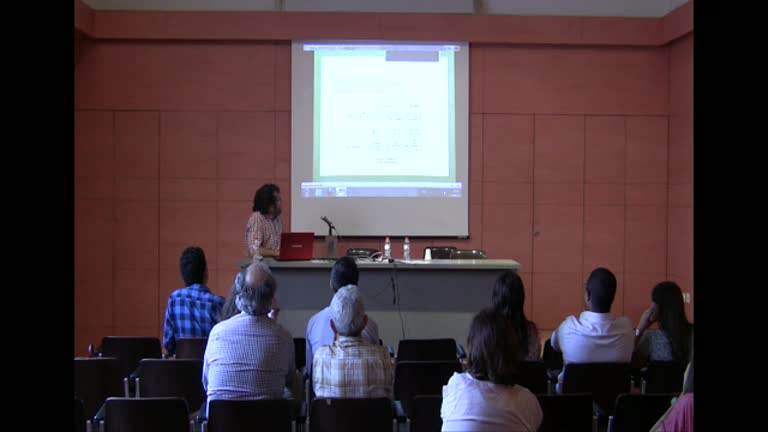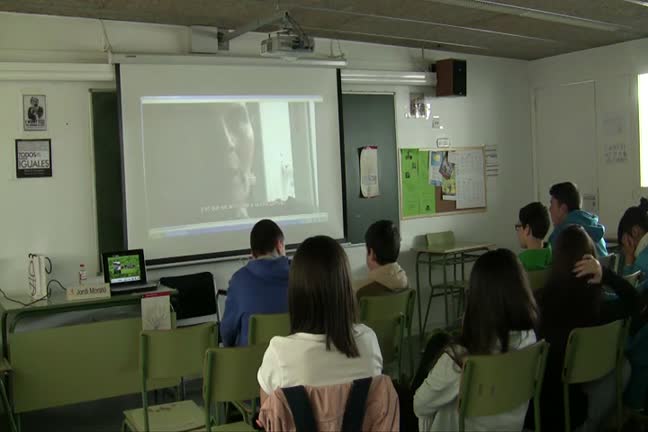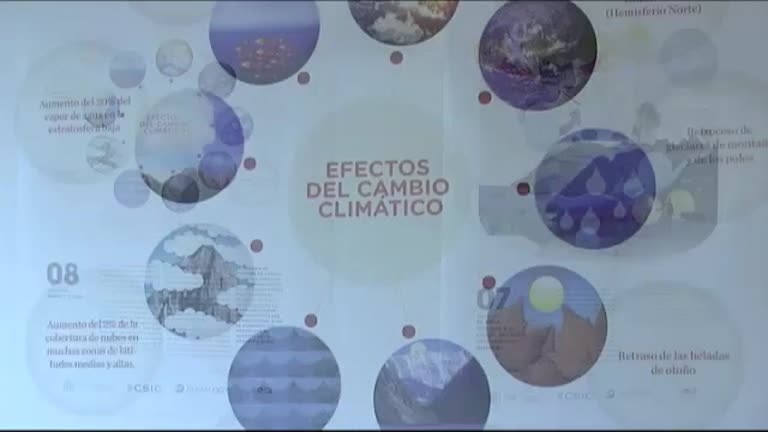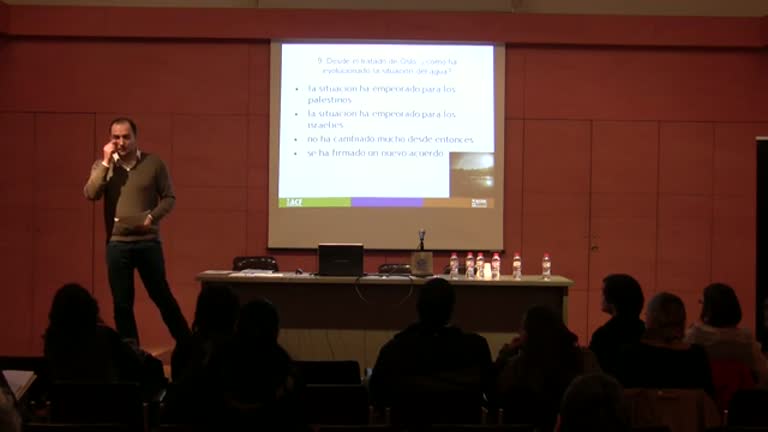Objectes multimèdia amb l’etiqueta: Desenvolupament humà i sostenible
Resultats de la cerca
I Jornada Tècnica Seguretat Vial
Accés obert
14 de maig 2014
I Jornada Técnica Seguridad Vial
Campus de la UPC en Terrassa
Campus de la UPC en Terrassa
Gestió de residus
Accés obert
24 d’abr. 2014
Segona Xerrada Reciclar Ciutat 2014
La finalitat de la xerrada és aprofundir sobre la correcta gestió de residus a nivell municipal, presentant com a exemple la gestió dels residus a la ciutat de Terrassa i l'experiència del projecte “Moravia Florece para la vida” realitzat a Medellín, Colòmbia. Així mateix, es presentarà el Curs sobre Gestió de Residus, impartit per la Universitat Oberta La Salle (UOLS), el qual analitza solucions integrals de descontaminació i restauració d'abocadors, les quals estan orientades a contribuir a la millora del medi ambient i aportar solucions amb múltiples funcions: social, paisatgística, ecològica i educativa.
La finalitat de la xerrada és aprofundir sobre la correcta gestió de residus a nivell municipal, presentant com a exemple la gestió dels residus a la ciutat de Terrassa i l'experiència del projecte “Moravia Florece para la vida” realitzat a Medellín, Colòmbia. Així mateix, es presentarà el Curs sobre Gestió de Residus, impartit per la Universitat Oberta La Salle (UOLS), el qual analitza solucions integrals de descontaminació i restauració d'abocadors, les quals estan orientades a contribuir a la millora del medi ambient i aportar solucions amb múltiples funcions: social, paisatgística, ecològica i educativa.
Economia circular i desenvolupament territorial
Accés obert
27 de febr. 2014
Primera Xerrada Reciclar Ciutat 2014
L'economia circular és un terme genèric per a una economia regenerativa per disseny. Els fluxos materials corresponen a dos tipus, materials biològics dissenyats per tornar directament a la biosfera, i materials tècnics, dissenyats per circular amb pèrdues mínimes de qualitat, promovent el canvi cap a una economia impulsada per les energies renovables.
Què és l'economia circular? Nicola Tollin és un investigador amb més de 10 anys d'experiència en desenvolupament urbà i regional sostenible. Ha estudiat a la Universita IUAV di Venezia, a la Venice International University , l'Institut d'Estudis Metropolitans de la Universitat Autònoma de Barcelona, i a la Universitat Politècnica de Catalunya. Ha desenvolupat activitats de recerca en el Departament d'Urbanisme de la Universita IUAV di Venezia, a la Facultat d'enginyeria civil i en el Instute on Facility Management de la Technical University of Denmark.
Durant els últims anys les seves investigacions s'han centrat en l'avaluació integrada de la sostenibilitat, davant del canvi climàtic i al canvi global, a través de processos de presa de decisió, polítiques i planificació basades en les teories del pensament sistèmic i a través l'ús de escenaris de futur. També ha investigat la dimensió humana de la sostenibilitat i del canvi climàtic, en termes de producció i consum sostenible, a través de l'anàlisi dels cicles materials i energètics i també del sistema de valor, intrínsec i percebut, amb enfocament cap a les teories del decreixement .
La benvinguda i presentació de l'acte, l'ha donat Jordi Morató, coordinador de la Càtedra UNESCO de Sostenibilitat de la UPC.
L'economia circular és un terme genèric per a una economia regenerativa per disseny. Els fluxos materials corresponen a dos tipus, materials biològics dissenyats per tornar directament a la biosfera, i materials tècnics, dissenyats per circular amb pèrdues mínimes de qualitat, promovent el canvi cap a una economia impulsada per les energies renovables.
Què és l'economia circular? Nicola Tollin és un investigador amb més de 10 anys d'experiència en desenvolupament urbà i regional sostenible. Ha estudiat a la Universita IUAV di Venezia, a la Venice International University , l'Institut d'Estudis Metropolitans de la Universitat Autònoma de Barcelona, i a la Universitat Politècnica de Catalunya. Ha desenvolupat activitats de recerca en el Departament d'Urbanisme de la Universita IUAV di Venezia, a la Facultat d'enginyeria civil i en el Instute on Facility Management de la Technical University of Denmark.
Durant els últims anys les seves investigacions s'han centrat en l'avaluació integrada de la sostenibilitat, davant del canvi climàtic i al canvi global, a través de processos de presa de decisió, polítiques i planificació basades en les teories del pensament sistèmic i a través l'ús de escenaris de futur. També ha investigat la dimensió humana de la sostenibilitat i del canvi climàtic, en termes de producció i consum sostenible, a través de l'anàlisi dels cicles materials i energètics i també del sistema de valor, intrínsec i percebut, amb enfocament cap a les teories del decreixement .
La benvinguda i presentació de l'acte, l'ha donat Jordi Morató, coordinador de la Càtedra UNESCO de Sostenibilitat de la UPC.
SmartGrids : xarxes de distribució intel·ligents
Accés obert
27 de febr. 2014
Conferència dins el cicle "Enginy i la Geltrú" on es parla sobre la necessitat d’implementar una xarxa intel·ligent, com es crea, incidència per a les empreses de distribució d’energia i la repercussió per als usuaris. S’explicarà el funcionament de la lectura automatitzada dels comptadors i els beneficis que tindrà tant per l’empresa distribuïdora com per els abonats, així com l’estalvi energètic global que pot suposar.
El repte de Codorniu: d'empresa familiar a multinacional.
Accés obert
27 de nov. 2013
El repte de Codorniu: d'empresa familiar a multinacional. Com una de les 20 empreses més antigues del món ha posat el talent i la innovació al servei del vi.
A càrrec de Tona Monedero, CIO del Grup Codorniu
A càrrec de Tona Monedero, CIO del Grup Codorniu
[SC 2013] Aigua i sanejament bàsic a les comunitats empobrides
Accés obert
19 de nov. 2013
Conferència impartida dins el cicle de xerrades de la Setmana de la Ciència 2013 a l'EPSEVG.
Mostra tres perspectives diferents sobre la problemàtica de l'aigua i sanejament a comunitats empobrides.
Des de la recerca, a càrrec de Ricard Giné: Visió general de context, on es descriu la problemàtica de l'accés als serveis bàsics en països empobrits.
Des de la institució, a càrrec de Daniel López: Visió general del CCD de la UPC i la seva aposta per transformar realitats desde la universitat.
Des de l'estudiant, a càrrec d'estudiants de la ETSECCPB i vinculats al Centre de Cooperació i Desenvolupament de la UPC: Apropar-se a la realitat a través d'un projecte concret al Nepal.
Mostra tres perspectives diferents sobre la problemàtica de l'aigua i sanejament a comunitats empobrides.
Des de la recerca, a càrrec de Ricard Giné: Visió general de context, on es descriu la problemàtica de l'accés als serveis bàsics en països empobrits.
Des de la institució, a càrrec de Daniel López: Visió general del CCD de la UPC i la seva aposta per transformar realitats desde la universitat.
Des de l'estudiant, a càrrec d'estudiants de la ETSECCPB i vinculats al Centre de Cooperació i Desenvolupament de la UPC: Apropar-se a la realitat a través d'un projecte concret al Nepal.
La economía social: la importancia de cómo hacer las cosas
Accés obert
13 de nov. 2013
Cicle de Conferències-Debat Organitzat en l'ambit de les assignatures "Empresa i Entorn Econòmic" del Grau en Enginyeria Informàtica i "Sostenibilitat, Economia i Compromis Social" del Màster en Enginyeria Informàtica.
Inauguració del curs acadèmic a l'EPSEVG 2013-2014
Accés obert
10 d’oct. 2013
El Campus de la UPC de Vilanova i la Geltrú dóna la benvinguda oficial al curs 2013/2014 en l’acte d’inauguració que se celebrà dijous 10 d’octubre a les 12.30h a la sala d’Actes de l’EPSEVG.
La lliçó inaugural ‘La força dels valors: es porta DINS’ anà a càrrec de Ramon Sanclimens Piñol, que parlà de com els valors de la solidaritat, generositat i empatia són claus en la societat actual.
A l’acte es lliuraren els premis als millors expedients acadèmics dels estudiants titulats en el curs 2012/2013. El Col·legi d’Enginyers Tècnics Industrials de Vilanova i la Geltrú (CETIVG) lliura els premis Joan Roset i Ventosa als millors expedients de les enginyeries d’àmbit industrial, el Col·legi Oficial d’Enginyers Tècnics i pèrits de Telecomunicació de Catalunya (COETTC) a l’Enginyeria Tècnica en Telecomunicació, EVERIS a l’Enginyeria Tècnica en Informàtica de Gestió i la Caixa d’Enginyers al millor expedient acadèmic de l’Enginyeria en Automàtica i Electrònica Industrial.
A continuació, l’EPSEVG premià als guanyadors del concurs Projecte de Fi de Carrera 2012/2013, i s’agraí la dedicació del personal universitari que compleix 25 anys de dedicació al campus i al personal que s’ha jubilat al llarg del curs passat.
L’acte fou presidit pel director de l’EPSEVG, sr, Frederic Vilà, l’alcaldessa la de ciutat, sra. Neus Lloveras, i el vicerector de Formació Permanent la Universitat Politècnica de Catalunya. BarcelonaTech (UPC), sr. Joan Majó.
La lliçó inaugural ‘La força dels valors: es porta DINS’ anà a càrrec de Ramon Sanclimens Piñol, que parlà de com els valors de la solidaritat, generositat i empatia són claus en la societat actual.
A l’acte es lliuraren els premis als millors expedients acadèmics dels estudiants titulats en el curs 2012/2013. El Col·legi d’Enginyers Tècnics Industrials de Vilanova i la Geltrú (CETIVG) lliura els premis Joan Roset i Ventosa als millors expedients de les enginyeries d’àmbit industrial, el Col·legi Oficial d’Enginyers Tècnics i pèrits de Telecomunicació de Catalunya (COETTC) a l’Enginyeria Tècnica en Telecomunicació, EVERIS a l’Enginyeria Tècnica en Informàtica de Gestió i la Caixa d’Enginyers al millor expedient acadèmic de l’Enginyeria en Automàtica i Electrònica Industrial.
A continuació, l’EPSEVG premià als guanyadors del concurs Projecte de Fi de Carrera 2012/2013, i s’agraí la dedicació del personal universitari que compleix 25 anys de dedicació al campus i al personal que s’ha jubilat al llarg del curs passat.
L’acte fou presidit pel director de l’EPSEVG, sr, Frederic Vilà, l’alcaldessa la de ciutat, sra. Neus Lloveras, i el vicerector de Formació Permanent la Universitat Politècnica de Catalunya. BarcelonaTech (UPC), sr. Joan Majó.
Sostenibilitat: experiències del projecte Moràvia
Accés obert
23 d’abr. 2013
El Projecte Moravia va ser plantejat per donar solució al problema ambiental causat pels efluents contaminats (lixiviats) emesos per les deixalles sòlids urbans que es trobaven en un antic abocador de Medellín, Colòmbia mitjançant la implementació i ús de tecnologies sostenibles per a la gestió de l'aigua: buffer Strips i Aiguamolls Construïts.
En aquest projecte es va aconseguir involucrar la població en el procés de transformació, permetent sensibilitzar la població sobre l'estreta relació entre la protecció del medi ambient i el desenvolupament dels pobles. El projecte de restauració socioambiental del Morro de Moràvia ha rebut diferents premis internacionals, i és un exemple sense dubte pel procés de transformació participatiu.
El projecte va ser documentat en vídeo, mateix que es va dur a terme entre els mesos d'abril i maig de 2012 (fase final del projecte), realitzant entrevistes a representants de la comunitat del barri de Moravia, d'entitats socioculturals, universitats, organitzacions de cooperació internacional i administracions públiques.
En aquest projecte es va aconseguir involucrar la població en el procés de transformació, permetent sensibilitzar la població sobre l'estreta relació entre la protecció del medi ambient i el desenvolupament dels pobles. El projecte de restauració socioambiental del Morro de Moràvia ha rebut diferents premis internacionals, i és un exemple sense dubte pel procés de transformació participatiu.
El projecte va ser documentat en vídeo, mateix que es va dur a terme entre els mesos d'abril i maig de 2012 (fase final del projecte), realitzant entrevistes a representants de la comunitat del barri de Moravia, d'entitats socioculturals, universitats, organitzacions de cooperació internacional i administracions públiques.
L'accés a l'aigua al territori Palestí ocupat
Accés obert
21 de març 2013
L’objectiu de l’acte ha estat oferir un altre angle de les conseqüències de l’ocupació del Territori Palestí i, així, sensibilitzar a la població d’un dels aspectes més desconeguts del conflicte al Pròxim Orient; la vulneració de drets humans bàsics com són l’aigua i l’alimentació.


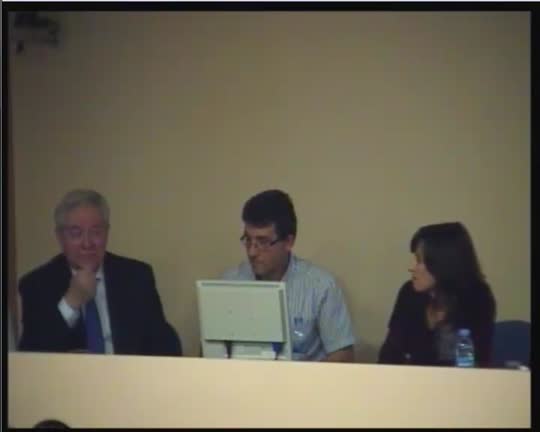
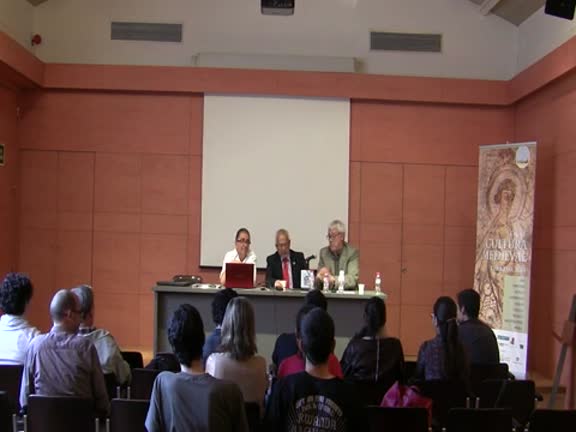
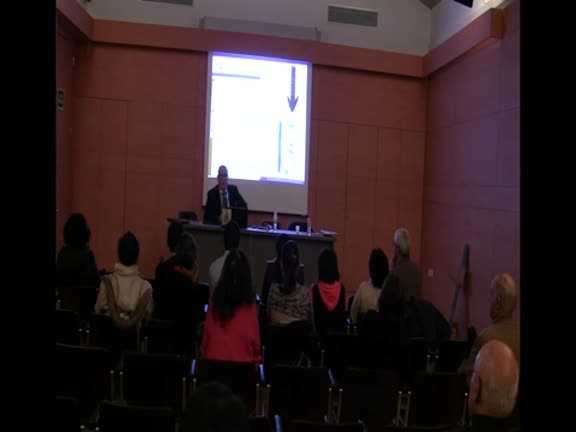
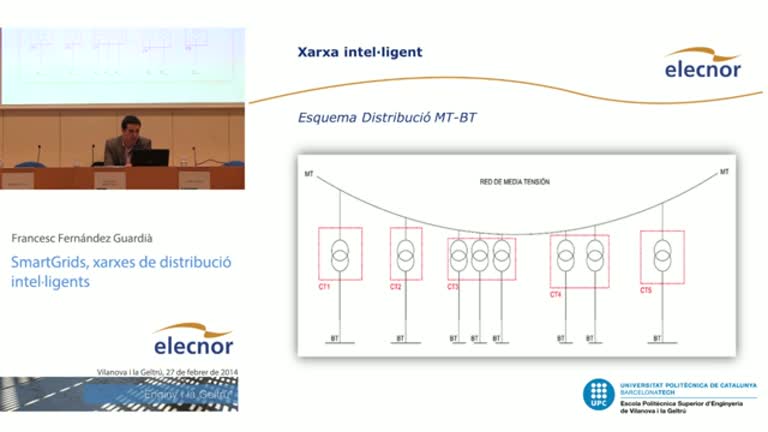
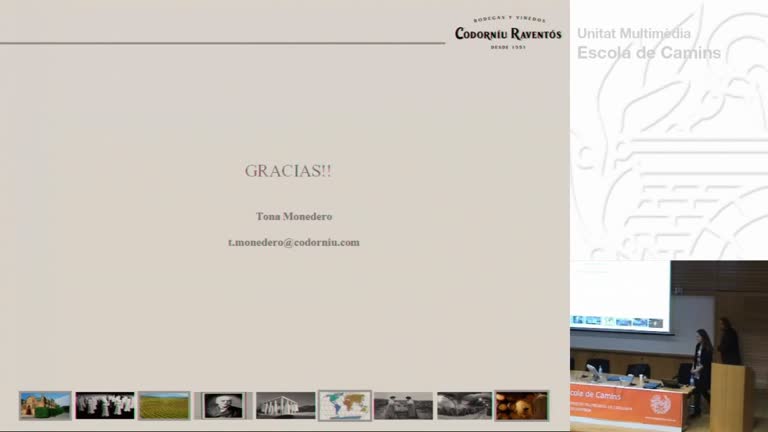
![[SC 2013] Aigua i sanejament bàsic a les comunitats empobrides](/uploads/pic/series/6040aa649e8fe0002b5e5184/video/6042743b9e8fe0115069e6c9/210305200348.jpg)
